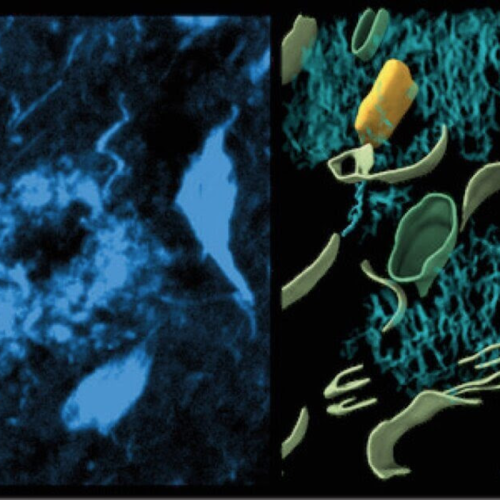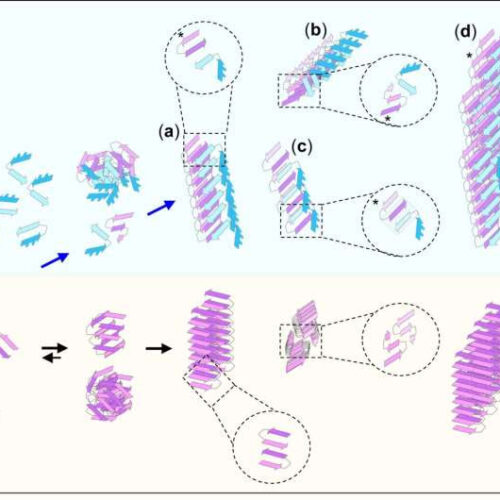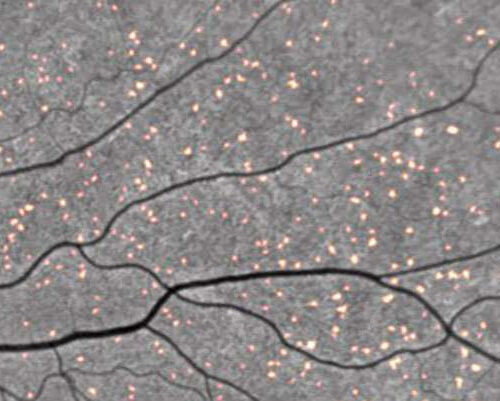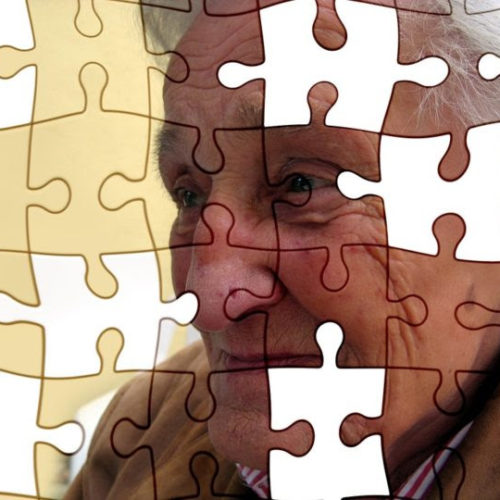By Chris Melore Research led by Dr. Rene Frank, University of Leeds Jul 11, 2024 Left, fluorescence image of amyloid in cryo-preserved post-mortem human brain. Middle, 3-dimensional molecular architecture of β-amyloid plaque. Right, in-tissue structure of tau filaments within post-mortem brain. (CREDIT: University of Leeds) LEEDS, United Kingdom — In a world-first achievement, scientists are...
Tag: <span>amyloid</span>
Alzheimer’s disease and type 2 diabetes: Synthetic peptides may suppress formation of harmful amyloid aggregates
by Technical University Munich Proposed mechanism and hypothetical models of IAPP/ACM nanofiber co-assembly versus IAPP amyloid self-assembly. The lower part, IAPP self-assembly into toxic oligomers and amyloid fibrils. The upper part, in the presence of ACMs, IAPP monomers/prefibrillar species are redirected into initially amorphous and non-toxic hetero-assemblies, which convert into amyloid fibril-resembling but ThT-invisible and...
Amyloid deposits in eyes provide a peek at Alzheimer’s disease risk
by University of California – San Diego Amyloid deposits tagged by curcumin fluoresce in a retinal scan. Credit: NeuroVision Amyloid plaques are protein deposits that collect between brain cells, hindering function and eventually leading to neuronal death. They are considered a hallmark of Alzheimer’s disease (AD), and the focus of multiple investigations designed to reduce or...
What Factors Help Predict Who Will Keep Their Memory into Their 90s?
Why do some people stay sharp into their 90s, even if they have the amyloid plaques in the brain that are associated with Alzheimer’s disease? And why do others reach their 90s without ever developing any plaques? These questions are explored in a new study published in the July 22, 2020, online issue of Neurology®,...
A precise look at Alzheimer’s proteins
by Environmental Molecular Sciences Laboratory A substance known as amyloid beta protein gets a lot of attention from scientists. Beta amyloid, as it’s also called, is a normal brain protein found in everyone, but for an unknown reason it gunks up in the brains of patients with Alzheimer’s disease, forming deposits that are the classic hallmark...
Researchers answer decades-old question about protein found in Alzheimer’s brain plaques
Alzheimer’s-affected brains are riddled with so-called amyloid plaques: protein aggregates consisting mainly of amyloid-β. However, this amyloid-β is a fragment produced from a precursor protein whose normal function has remained enigmatic for decades. A team of scientists at VIB and KU Leuven led by professors Joris de Wit and Bart De Strooper has now uncovered that this amyloid precursor protein modulates neuronal signal...




